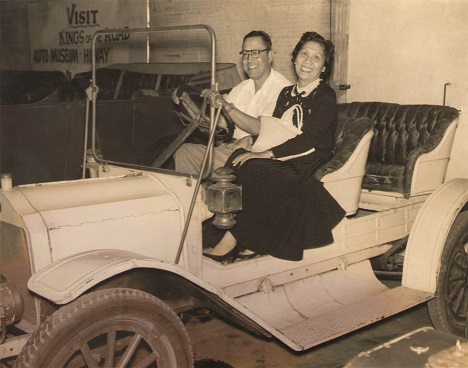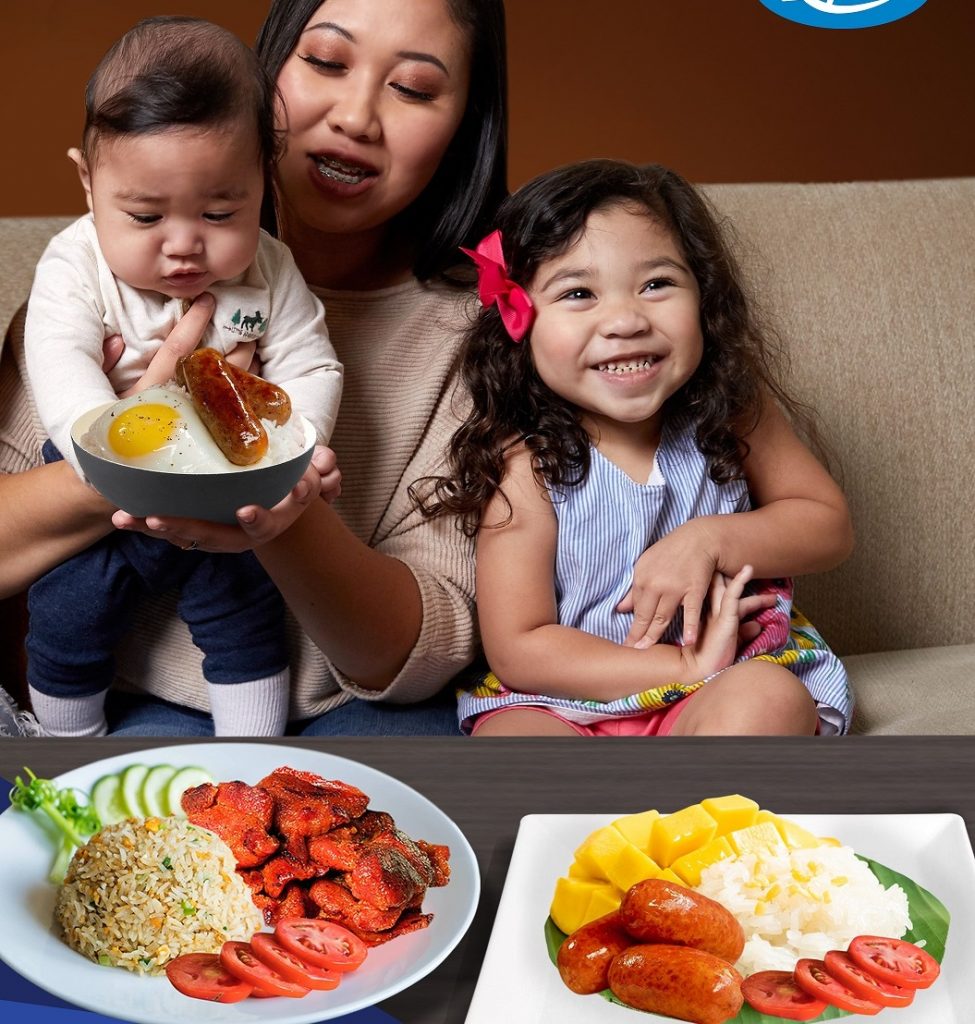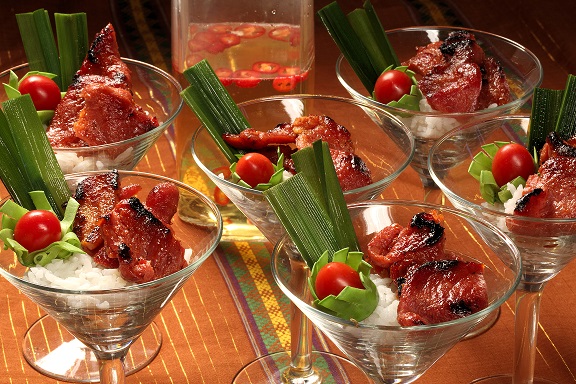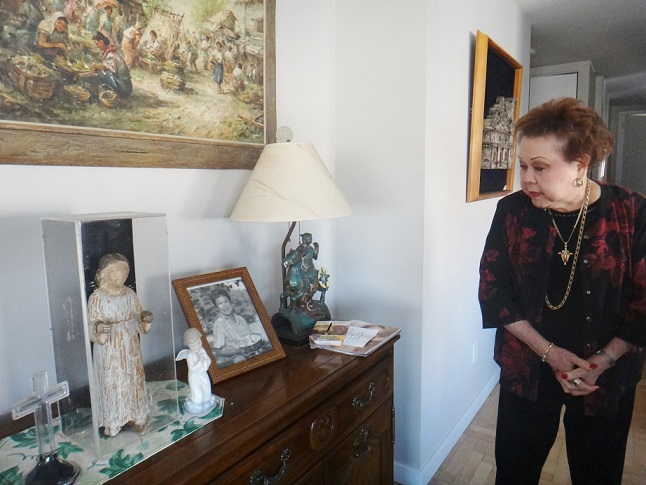The Filipino Breakfast and how it usually starts with Tocino, Longanisa

By Maricar CP Hampton & Cristina DC Pastor
In 1968, schoolteacher Maria Quesada and her husband Ramon, a pharmacist, arrived in the U.S., curious about opportunities in the country.
They settled in San Francisco and opened two businesses – a handicrafts and furniture store and a Filipino grocery – adjacent to each other. Seeing that FilAms would buy comfort food like patis and pandesal, passing by the large narra tables and chairs, they decided to close one business and build on the other. The ‘other’ has grown into Ramar Foods, International, the oldest Filipino frozen food manufacturer in the U.S. at 52 years, and possibly the biggest. The Quesada family — all three generations of them — would like it to be known as “most trusted.”
“It was my grandma,” began Gabriel ‘Gabe’ Quesada, 40, grandson and marketing manager, “who started it all. She is the entrepreneur. My lolo worked for her.”
Ramar began as a regular grocery store in San Francisco that sold meats, fish and ingredients one would use to cook a traditional Filipino meal.
“Before the store in San Francisco was opened, my lola started selling at the San Jose Flea Market in 1968,” said Quesada in an interview with The FilAm.
With Maria’s entrepreneurial spirit and the couple’s hard work and perseverance, they were able to raise 11 children while scaling the business. In 1972, there were three grocery stores, and the company began working with a local manufacturer to make its first product, Magnolia ice cream.
“We moved to our Telegraph facility in 1982, where we started making our ice cream. In 1988, we opened Garcia, with Railroad Avenue (in Pittsburg) becoming our HQ in 1998,” he said.
The expanded enterprise now manufactures frozen food and supplies to Filipino and Asian groceries all across the country, including certain branches of Walmart and Target. It employs 260 people of different ethnicities (predominantly Filipino). Because of the pandemic, production is divided into two shifts for safety measures, each shift working 6 to 7 days a week to meet demand.


Ramar Foods used to have 11 brands in its frozen foods family which the company recently consolidated into just five. “With the support of the community, Ramar has developed the Magnolia brand into one that is as synonymous with premium quality as it is authentic flavors,” he said.
Magnolia is now the label behind the frozen breakfast products, like Tocino, Longanisa, Hamonado (meat and chicken), Dried Fish and others. With a growing awareness for healthy options, the company has eliminated the use of preservatives, promoting them as “uncured meats” but still retaining their Filipino flavor and texture. Quesada explained how the company streamlined the distribution process where the meats do not have to use preservatives to prevent spoiling.
“Since our supply chains are 100 percent frozen and doesn’t defrost until it arrives in your home these strong undesirable preservatives were not really necessary,” he said.
Quesada continued, “A lot of Filipinos are concerned with their health. Several studies show that many of these preservatives can contribute to greater risk of undesirable health conditions. Some have told us that they have stopped buying Longanisa and Tocino because they cannot find a product that would fit the health guidelines that they are strictly following.”
Everything in the preparation is traditional, he said. “It’s just like going back to the Longanisa and Tocino that our parents and grandparents used to consume back home in the Philippines where we use natural salt to prepare the meats and have them consumed fresh.”
The meat, he said, is manufactured using a combination of manual and machine processes.
“In every step there is a person there monitoring it for quality. We have trained people that know how Longanisa should taste and feel when you bite it. It’s in the mixing of the meat to get the correct balance that is not too much fat but enough fat to get that authentic taste,” he said.

Has Covid 19 affected the business in any way?
Quesada said the family is “extremely fortunate” to be in the food business and likeeveryone else, they are saddened by the loss of lives and overall feeling of helplessness because of restrictions. “More people are cooking at home and it turns out Filipinos and American-born Filipinos find it essential to have Filipino flavors in their kitchen,” he said.
For now, breakfast is the starting point where a FilAm family begins the day with a meal that is easy to prepare and sustains them.
“Those with a more active lifestyle and don’t have time to prepare food from scratch…” said Quesada, “that is precisely why we think our Longanisa and Tocino are successful because you can take it right out of the freezer.” In multigenerational families, he added, stay-at-home lolos, lolas and titas can look after the kids and easily prepare their meals.
The company is looking to get to a place where Ramar becomes an American staple much like the Italian Ragu or Prego and or the Hispanic Goya brand. There are challenges to going mainstream, he said. “Most Americans don’t know much about the Philippines, our culture or languages, and they don’t even know where we are in the map. There are a lot of questions about the Filipino food. When we are presenting Longanisa we get questions like, is this a chorizo, hot link sausage?”
Ramar is exploring organic and vegan/vegetarian products without departing from the traditional Filipino flavor.
“Filipino food will have its time where you can walk in any market in any state and find Filipino products on the shelves,” he said. “One day soon.”
© The FilAm 2020











